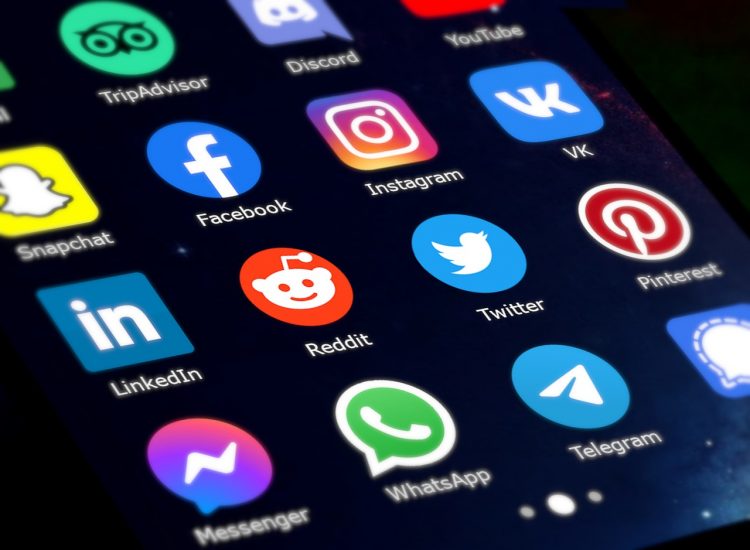IPTV in the Netherlands: Affordable, High-Quality Streaming for Modern Viewers
Streaming television has changed how people in the Netherlands watch their favorite programs, sports, and movies. IPTV, or Internet Protocol Television, has quickly become one of the most popular alternatives to traditional cable and satellite. The ability to stream live TV channels, on-demand content, and even international programming using an internet connection is drawing interest from viewers of all ages. With more Dutch households seeking affordable and high-quality entertainment options, IPTV is increasingly considered a cost-effective way to access a broad range of content, all without the binding contracts or high monthly fees that often come with traditional TV providers.
One of the main appeals of IPTV is how easy it is to access. Viewers can watch shows and movies on smart TVs, smartphones, tablets, or computers. The only real requirement is a stable internet connection. With the growing demand for flexibility in media consumption, IPTV services are responding with features like catch-up TV, multi-device support, and customizable channel packages. For those looking to iptv kopen, it is now possible to find options that fit both their budget and viewing preferences.
As more households in the Netherlands cut the cord and move away from fixed cable subscriptions, understanding how IPTV works, its benefits, and how it stacks up against traditional TV is becoming increasingly relevant. To better understand the appeal and offerings of IPTV, it helps to look at what sets it apart from its competitors.
What Makes IPTV Different from Traditional TV?
Traditional television relies on cable or satellite infrastructure, where viewers are tied to a set number of channels and schedules. IPTV, by contrast, delivers television content over an internet connection. This shift brings a number of advantages, starting with flexibility in how and where people watch. No longer limited to a living room television, viewers can stream content on multiple devices at home or on the go.
- Choice: IPTV services typically offer more customizable packages, letting subscribers pay for the channels or genres they actually watch.
- On-Demand Access: Many IPTV providers offer libraries of movies and TV series that can be streamed at any time, not just when they air live.
- International Content: IPTV platforms often include channels from around the world, making it easier for immigrants or language learners to watch content from their home countries.
- Interactivity: Features like pause, rewind, and catch-up TV allow viewers greater control over their viewing experience.
As a result of these features, IPTV has become appealing for people who value both convenience and choice. This shift toward internet-based viewing is also prompting traditional TV providers to rethink their offerings, adding more on-demand and streaming capabilities to keep pace with changing habits.
The Cost Advantage: IPTV as an Affordable Alternative
One of the key reasons many Dutch households are considering IPTV is the potential for savings. Traditional cable and satellite packages often require long-term contracts and charge higher monthly fees, especially when premium channels or sports packages are included. IPTV, on the other hand, is known for its competitive pricing and flexible subscriptions. Many providers offer monthly or even weekly plans, so viewers can adjust their spending based on their needs.
To illustrate how IPTV compares with other TV services in the Netherlands, the following table provides an overview of common costs, features, and contract requirements:
| Service Type | Average Monthly Cost | Contract Requirement |
|---|---|---|
| IPTV | €10 – €20 | No contract or flexible monthly |
| Cable TV | €30 – €60 | 12-24 month contract |
| Satellite TV | €25 – €50 | 12-24 month contract |
| IPTV (Premium/International) | €15 – €30 | No contract or flexible monthly |
| Cable TV (Premium/International) | €40 – €80 | 12-24 month contract |
This table shows IPTV’s price advantage, especially when considering the absence of long-term contracts. Lower entry costs and fewer commitments make IPTV an attractive option for renters, students, and anyone seeking to manage their monthly expenses more closely. With affordability in mind, viewers are able to dedicate more of their budget to other interests or upgrade their internet connection for even better streaming quality.
Quality and Reliability: Meeting the Demands of Modern Viewers
While price is a major factor, viewers also expect high-quality and reliable streaming. IPTV providers in the Netherlands have invested significantly in improving streaming technology. Many services now offer Full HD and even 4K resolution for compatible devices, along with minimal buffering and reliable uptime. The increasing availability of fiber-optic internet in Dutch cities and towns further supports a smooth viewing experience, even during peak hours.
Another area where IPTV stands out is the ability to stream simultaneously on multiple devices. Families can watch different programs in separate rooms, while individuals can switch seamlessly between a phone, tablet, or TV without missing a moment. Customizable electronic program guides (EPGs), parental controls, and built-in recording features provide additional value, making IPTV suitable for a wide range of viewing preferences and household needs.
As streaming quality continues to improve and internet speeds increase across the Netherlands, IPTV is well positioned to keep up with the demands of even the most discerning viewers. The combination of affordability and high-quality streaming is leading more people to consider IPTV as their primary source of television content.
Popular Features and Content Options
Content variety is a central selling point for IPTV. Services typically offer a wide selection of local Dutch channels, as well as popular international options in English, German, French, Turkish, Arabic, and other languages. Sports fans benefit from access to live events, including football, Formula 1, tennis, and more. Movie lovers can find new releases and classic films, while children enjoy dedicated channels and on-demand cartoons.
Some of the most sought-after features include:
- Catch-Up TV: Watch programs that aired up to seven days ago.
- Video on Demand (VOD): Access to libraries of movies and series at any time.
- Multi-Screen Support: Stream on several devices simultaneously under one account.
- Flexible Subscriptions: Pay for only as long as you need, with no surprise fees.
- User-Friendly Apps: Many IPTV services offer apps for smart TVs, Android, iOS, and desktop platforms.
With such a broad range of content and features, IPTV is able to cater to households with varied tastes and interests. This level of customization was previously difficult to achieve with cable or satellite TV, where packages were more rigid and less personal.
Legal and Ethical Considerations
It is worth noting that not all IPTV services operate under the same legal framework. In the Netherlands, as elsewhere, it is important for consumers to ensure that their chosen provider holds the proper licensing for the channels and content offered. Unauthorized streaming services may offer attractive prices, but they can put users at risk of legal action and may expose devices to malware or privacy risks.
Reputable IPTV providers typically make their licensing status clear, and consumers are encouraged to do their own research before subscribing. The Dutch government and various industry bodies have taken steps to educate the public about the risks associated with illegal streaming. Choosing a legitimate service helps protect both the viewer and the creators of the content being enjoyed.
By choosing trustworthy providers, viewers benefit from a more consistent and secure experience, along with customer support and regular updates. This peace of mind is an added value that goes beyond just the cost and features of the service itself.
Looking Ahead: The Future of Television in the Netherlands
The shift toward IPTV is part of a broader trend in how Dutch people consume media. Streaming is now the norm for many households, with flexibility and affordability as top priorities. As internet speeds continue to improve and more content is made available online, IPTV is likely to become even more widespread, offering even greater choices for viewers across the country.
Traditional TV providers are responding by expanding their digital offerings and making it easier for customers to switch between live and on-demand content. This competition benefits consumers, driving innovation and keeping prices competitive. As the television market in the Netherlands continues to change, viewers have more control than ever over what, when, and how they watch.
For those considering a change from cable or satellite, IPTV stands out as an option that combines choice, convenience, and savings. With the right provider and a solid internet connection, enjoying high-quality television has never been more accessible to people throughout the Netherlands.
 Jardins dHeva Let us entertain you!
Jardins dHeva Let us entertain you!


















 The Lordship-Titles Company is a family-run business with over 60 years of experience in the gift industry. They have an amazing range of items, from personalized gifts to bespoke suits for weddings and funerals. When you buy one of their many products they will make sure that your title matches up perfectly so every time someone greets you properly by calling out “Your Grace” or simply saying “Lord X,” it feels like just another day at the office. Below are the steps to claim your lordship title:
The Lordship-Titles Company is a family-run business with over 60 years of experience in the gift industry. They have an amazing range of items, from personalized gifts to bespoke suits for weddings and funerals. When you buy one of their many products they will make sure that your title matches up perfectly so every time someone greets you properly by calling out “Your Grace” or simply saying “Lord X,” it feels like just another day at the office. Below are the steps to claim your lordship title:




